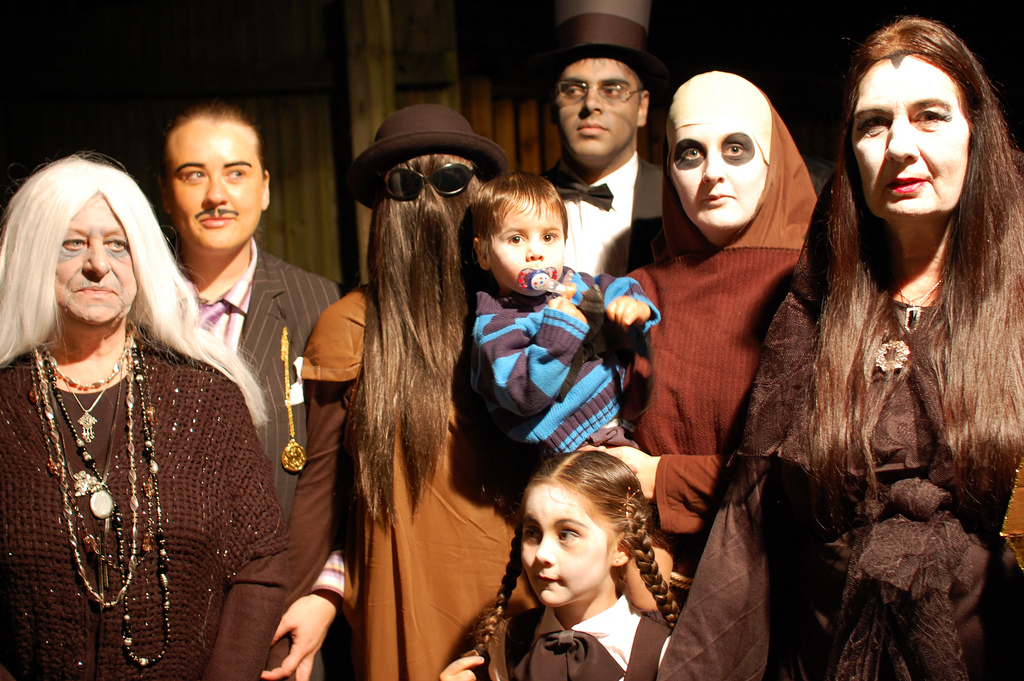 Did this ever happen to you? You think the way your family (of origin) does something is normal, and then, suddenly, you find out it isn’t?
Did this ever happen to you? You think the way your family (of origin) does something is normal, and then, suddenly, you find out it isn’t?
Usually, this happens when you form close relationships outside your family of origin. Fireworks can ensue!
How your family dealt with conflicts, problems, shame, secrets, and tragedies shaped you and learning relational and loyalty dynamics from the previous generations in your family can bring relational repair, health, and hope.
That’s what today’s show is about. I’m glad you can listen, today.
Podcast: Play in new window | Download (87.7MB) | Embed
Subscribe to Spark My Muse Apple Podcasts | Spotify | Email | TuneIn | RSS | Subscribe to Spark My Muse
Today’s guest is graduate school professor and marriage and family therapist in private clinical practice, Janet Stauffer, Ph.D.

JANET’S BIO:
Dean of Students, Evangelical Seminary
Professor of Marriage and Family Therapy
In addition to her work at the seminary and her clinical practice, Janet is vice president of the Board of Directors at Philhaven Behavioral Healthcare facility. She has led retreats, presented at professional conferences, and published articles in a number of journals. She is a licensed marriage and family therapist and approved supervisor and clinical member of the American Association of Marriage and Family Therapists. She also holds membership in the Christian Association for Psychological Studies. Her research interests include genuine meeting through dialogical engagement, loyalty dynamics between and across the generations of the family, and the intersection of faith and therapy.
SHOWNOTES:
MIN
1:40
Each person is born with an inherent longing to connect.
2:40
Early childhood experiences shape who we are and how we relate to others.
Our ancestors deliver ways of being to us across generations:
4:00
What can be done if the early years weren’t filled with dysfunction and problems?
5:00
How relationship can alter the wiring and re-patterning of the brain.
5:30
Jim Coen, UVA – The Hand holding experiment.
7:00
In close relationships, we end up feeling–not only are you here with me–but somehow you are me. Somehow we are here together.
8:20
Before we can help others, we have to be open to ourselves and our own healing. Our wounds can remain as vulnerabilities and our greatest resource.
11:00
“I because who I am through my relationships with other people, so that more of me gets called forth as I respond to others in my world around me.”
The still face experiment:
12:15
“Foo-Poo” (FOO = Family of Origin) influences our current relationships.
12:45
The interconnectedness and “loyalty dynamics” between and across the generations and how during all our interactions we are holding something that has been passed down across generations and in the larger cultural dynamics.
14:00
Example from life (Janet, her husband and the Ford Fiesta). Naming the truth in our interactions and being curious about what we hold from generations before us.
16:00
Janet explored what anger was like for her mother and grandmother and discovered not just a family secret and the shame that was carried on, but also a a family norm relating to how pain is dealt with.
18:00
Family secrets and ways of interacting waiting like land mines that can sabotage our other relationships.
20:00
We can also end up carrying or holding visibly or invisibly things that our spouse (or other close relationships) hold as well.
21:30
There are options for growth and healing if we can be open, aware, curious and can find courage to turn and face [the other] and remember where our weakness are and admit them.
22:30
The power of naming what is happening for us emotionally.
23:00
“Honoring my personal truth, personal awareness, my being, and made a claim for myself has a profound impact in my own knowing.”
24:00
“Every one of us experiences terror at the thought of finding the courage to turn and face the other in a painful situation at some point in our life.”
25:30
A defend or fight mode should be superseded by the prevailing message “You and I are on the team team ultimately. We have a reason to connect and I long for you. But it’s been hard between and here’s something of how it’s been for me… and I want to know what it’s like for you.”
26:20
Yet, we cannot think what we say will always help because we cannot guarantee the other person’s response. So there is vulnerability in saying the truth.
26:50
Being calm, curious and compassionate even in the face of wounds and vulnerability.
27:30
Emotionally self-regulating and contending with emotional triggers.
30:00
(In marriage or close relationships) Learning self and other in a whole new way…in a kind of sacred space to grow through the most tender places that we hold.
31:00
Telling the other what would help in what feels like an unsafe place emotionally.
31:20
Learning to soothe one another.
32:00
On core lies we can believe about ourselves.
33:00
Honoring when emotional safety is just as important as physical safety.
34:00
What to do when it’s not safe to have important conversations.
36:00
Martin Buber-We live with an armor around us and bands around our heart and being closed off and unaware and unaddressed.
37:30
Asking questions of ourselves to create more awareness and realizing our thoughts and memories are not us.
38:30
We limit our imagination about the capacity each of us holds to respond the other, the world around us and ourself.
39:00
We can test our assumptions and plant seeds that bring new possibilities for ourself and others.
40:20
When we can’t yet name or isolate our feelings.
41:00
Giving permission and a soft demand to know what is going on with someone else and helping them find their voice.
42:30
The biblical tradition of the garden where God says “Where art thou?” a story about hiding. God’s longing for humankind.
44:00
King David in the psalms is modeling openness and receptivity…asking “What is in my heart?” “Who am I?” “What do I hold?”
46:00
Being open and still safe. Giving yourself warm, regard, and leaving the self-judgment out.
“Judgment limits the knowing.”
47:00
Being present to and growing in recognition of “here’s what I hold” or “here’s what freezes me” etc and asking “how can I be more free?” and then exploring new pathways and practices that go somewhere.
50:10
On the spiritual practices and things can people do to move forward.
51:00
These ways of understanding what it is to connect, grow and be human are universal and offer hope to those with varied religious tradition and no religious affiliation too.
53:00
The spiritual and the Other when it is not defined as “God”.
54:20
“God doesn’t limit God’s self to the church or the synagogue or the mosque and we can never fully describe God because God cannot be contained and is always more than what I can fathom or grasp”
55:00
Asking, “How do I understand the call before me and how do I invite others and find the place where they are experiencing call and longing and where is this work happening within them. What is being invited forth?”
56:10
How we can pass down the best of our generational dynamics and loyalties to our children.
57:20
On the invisible family rule of perfectionism and how it made Janet think she could be the perfect parent and how that idea was shattered.
58:30
How she approached her son after that point to understand what he was experiencing and being surprised by his reply.
59:00
We can never get it all right, but we can be willing to go to our child and ask them about their experience.
60:00
Inviting others to know themselves in whatever capacity to do that they can and hold what they say with care and honor.
61:00
Enacting moments and accumulating themes and transactions and happenings and asking “Is their a burden they carry or an injury of disregard or diminishment that was not theirs to carry?” which deserve address and caring and honor.
62:00
On having a commit to “I will be there for you, and I will be here for me, and I invite you to be here for me,” is a profound act that helps us for the long run.
64:00
Despite our efforts, outcomes are not guaranteed and each person has an opportunity to respond uniquely.
RESOURCES for further discovery:
Please subscribe to the Spark My Muse newsletter (HERE) to know about upcoming shows and new things in the works!
Think anyone else might appreciate the show? Please share it with that special someone! :)




